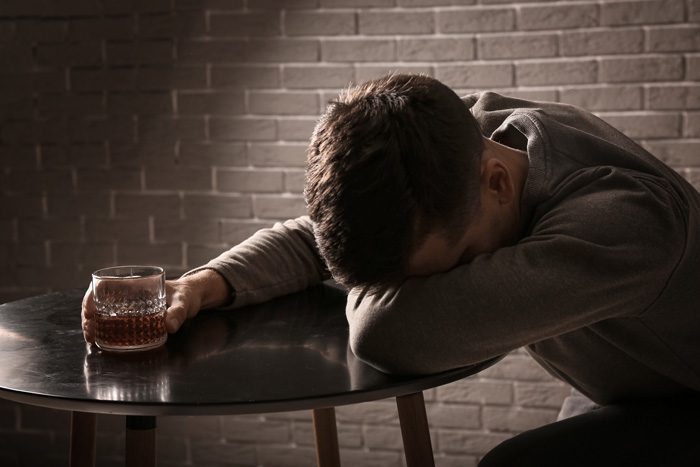 The COVID-19 coronavirus pandemic has created a sharp increase in the number of adults experiencing depression symptoms. People who are in recovery for drug or alcohol addiction are already predisposed to struggling with depression, so it’s important to be proactive about managing your mental health during these uncertain times.
The COVID-19 coronavirus pandemic has created a sharp increase in the number of adults experiencing depression symptoms. People who are in recovery for drug or alcohol addiction are already predisposed to struggling with depression, so it’s important to be proactive about managing your mental health during these uncertain times.
Understanding the Relationship Between Alcohol Abuse and Depression
Often, people who suffer from chronic depression turn to alcohol to self-medicate their condition. Drinking temporarily makes them feel better, but the physical and social problems caused by alcohol abuse eventually exacerbate the negative effects of depression on their mental health.
Even if you’ve never experienced depression before, it’s not uncommon to have mental health issues in the early stages of sobriety. The chemical changes prolonged alcohol abuse creates in the brain can take time to undo, which can make it harder to find a steady baseline emotional state. Recovery is also a time of significant life changes, and the loss of old friends and routines can feel overwhelming even when you know you’re doing what’s best for your long-term health.
Regardless of whether a person has a history of depression or is experiencing symptoms for the first time, it’s important to remember that depression is nothing to be ashamed of. It’s a legitimate medical condition, not something you can simply “snap out of” on your own.
Symptoms of Depression
Everyone feels blue from time to time, but depression refers to feelings that last longer than two weeks and are severe enough to interfere with a person’s daily routine. No two people experience this mental health disorder in exactly the same way, but some common signs of depression include:
- You don’t have the energy to socialize. Social distancing restrictions have made it harder to spend time with friends and family in person. You can stay connected via Zoom or FaceTime, but this new way of virtually spending time together takes some getting used to. If you’re depressed, you might not have the energy to figure out how to effectively make the switch.
- You’ve lost interest in your favorite activities. When you’re depressed, it’s common to abandon favorite hobbies and activities. This includes activities done with friends as well as solitary pursuits, such as listening to music, writing in your journal, or tending to your garden.
- You’re sleeping poorly. Sleep problems are very common among people who are struggling with depression. You may find it hard to fall asleep at night, wake up often, or feel exhausted no matter how much you sleep.
- You’re not eating right. Depression often causes appetite changes. You may lose interest in food entirely, or you may be drawn to sugary, fatty, or otherwise unhealthy comfort foods. In either case, you’re not getting the fuel your body needs.
- You’re having trouble concentrating. People who are depressed often report having trouble focusing at work or school. Sometimes, they even find it hard to focus long enough to enjoy a book or television program.
- You’re sad, hopeless, irritable, and anxious. Trouble regulating your mood is a classic sign of depression. You may feel sad one minute and angry or irritable the next.
- You don’t feel well. Headaches, stomachaches, muscle soreness, and digestive problems with no readily identifiable physical cause can be signs of depression.
- It’s hard to think about the future. Staying focused on your short-term and long-term recovery goals is essential. If you’re no longer feeling optimistic about the progress you’ve made and the possibilities of a sober life, your depression is putting you at serious risk of a relapse.
- You’re thinking of hurting yourself. Most people with depression do not actively have thoughts of suicide or self-harm, but this can be a sign of severe depression. You can call the National Suicide Prevention Hotline at 1-800-273-8255 for free and confidential support, as well as referrals to helpful community resources. However, if you’re experiencing an immediate crisis, you should contact 911 for assistance.
Getting Help
If you think you might be depressed, take action immediately. Talk to your treatment team about your symptoms and how they’ve been affecting your recovery efforts.
Lifestyle modifications can ease mild depression symptoms, but your doctor may recommend prescription antidepressants. It is important that you take your medication exactly as prescribed, even after you start to feel better. Skipping doses or abruptly stopping antidepressants can lead to problematic withdrawal symptoms.
At Waypoint Recovery Center, we understand that depression can make it significantly more challenging to meet your recovery goals. We offer a full continuum of care for clients with co-occurring disorders and will remain open throughout the coronavirus pandemic as an essential business. If you’re struggling, we’re here to provide the support you need to continue to move forward with your recovery.





